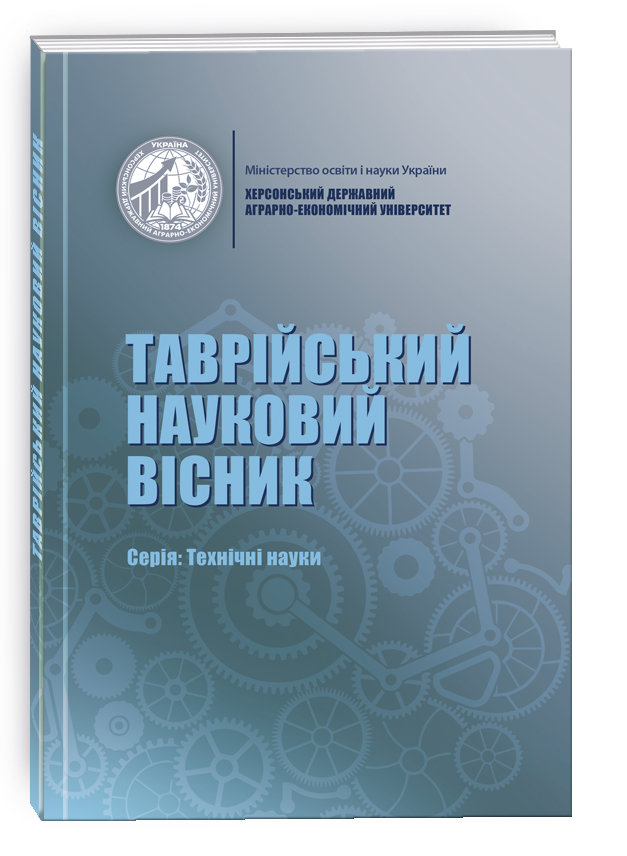STUDY OF THE INFLUENCE OF ENZYMES ON THE PROCESSING STAGE OF SUNFLOWER OIL
DOI:
https://doi.org/10.32851/tnv-tech.2022.5.11Keywords:
enzymes, enzymes, vegetable oil, fuzz, food technologies, phospholipasesAbstract
The article is devoted to highlighting the peculiarities of the work of enzymatic preparations in the oil-fat sector for the treatment of the by-product of oil processing – fuzz, to determine the possibility of increasing the yield of the final product and reducing the amount of industrial waste. Enzymes are very diverse in their properties, which makes it possible to situationally select a complex of drugs based on the parameters of the input raw materials, almost or not at all changing the course of technological processing. The study of the issue of the use of enzymes in food technology allowed us to come to the conclusion about the widespread use of enzymatic preparations in many areas of the food industry, however, their addition during the processing of vegetable oil for Ukrainian enterprises has not yet been widely implemented and is at a sufficiently low level. The use of enzymes can significantly simplify the technology of pressing by-products and provide a biologically safe processing technology. Enzymes are selected based on the input parameters of raw materials and they are able to significantly improve the chemical parameters of the starting oil. The enzymatic method also controls the amount of phospholipids in the finished product, which is very important in the production of both edible and technical oil. This paper provides an example of processing sunflower fuzz with phospholipases of group A1, A2 and their simultaneous use to compare oil yield and final parameters in the product. The obtained results indicate the expediency of the simultaneous use of phospholipases of groups A1 and A2 and the prospects of technological processing for the production of vegetable oil. The use of enzymes for oil processing is an economically beneficial solution that significantly increases the yield of the finished product, provides optimal physicochemical parameters, and simplifies the conditions and process of oil hydration. Enzymes can become an important part of the technological treatment of secondary products, which will allow to significantly increase the yield of oil and minimize the amount of waste.
References
Частка України у світовому виробництві олії скоротиться до 21 відсотка. Видання Bizagrо. 2022. URL: https://bizagro.com.ua/chastka-ukrayini-u-svitovomuvirobnitstvi-ta-eksporti-oliyi-u-2022-23-marketingovomu-rotsi-skorotitsya-do-21-i-35-vidsotkiv-vidpovidno-usda/ (дата звернення 23 жовтня 2022).
Suellen A. O. Ribeiro,a Antonio E. Nicacio,a Ana B. Zanqui. Application of Enzymes in Sunflower Oil Extraction: Antioxidant Capacity and Lipophilic Bioactive Composition. Journal of the Brazilian Chemical Society. № 5. 2016. С. 835-839.
Черства А.О. Удосконалення технології пресового вилучення ріпакової олії з використанням ферментних препаратів : автореф. дис. ... канд. техн. наук : 05.18.06 «Технологія жирів, ефірних масел і парфумерно-косметичних продуктів» НУХТ: К., 2018. 18 с.
Вовк Г.О., Носенко Т.Т. Вплив попередньої ферментативної обробки гарбузового насіння на вихід пресової олії та її хімічний склад «Якість і безпечність харчової продукції і сировини – проблеми сьогодення»: матеріали конференції присвячена 80-річчю Заслуженого діяча науки і техніки України, д.т.н., професора Львівського торговельно-економічного університету І.В. Сирохмана 2020. Київ : НУХТ, 2020. С. 207-209.
Гладкий Ф.Ф., Волошенко С.В. Можливість проведення реакції гідратації фосфоліпідів олій з використанням ферментного препарату фосфоліпази С. Вісник національного технічного університету «ХПІ». Харків : НТУ «ХПІ». 2011. № 34. С. 32-37.
Гладкий Ф.Ф., Волошенко С.В. Нова ферментна технологія гідратації олій. Критерії вибору ферментних препаратів «Технічні науки: стан, досягнення і перспективи розвитку м’ясної, оліє жирової та молочної галузей»: Міжнародна науково-технічна конференція 22–23 березня 2012 р. Київ : НУХТ, 2012. С. 82.
Волошенко С.В. Застосування ферментів класів гідролаз та ацилтрансфераз в технології гідратації олії Технологический аудит и резервы производства. 2012. № 3/2(5). С.11-12.
Носенко Т.Т, Жупанова Д.О. Огляд технології ферментативного рафінування рослинних олій. «Підвищення ефективності діяльності підприємств харчової та переробної галузей АПК» матеріали Всеукраїнської науково-практичної конференції 2020 р. Київ :НУХТ, 2020. С. 53-54.
Гладкий Ф.Ф., Богодіст-Тимофєєва О.Ю. Модифікування фосфатидного концентрату за допомогою ферменту. Вісник Національного технічного університету «Харківський політехнічний інститут». Харків : НТУ «ХПІ». 2002. № 9, т. 2. С. 35-38.
Демидова А.О., Гладкий Ф.Ф., Березка Т.О. Сучасні способи гідратування рослинних олій: аналітичний огляд. Innov Biosyst Bioeng. 2021. № 5(2). С. 105–116.







